- Home
- Jack Higgins
the Iron Tiger (1974)
the Iron Tiger (1974) Read online
THE IRON TIGER
Jack Higgins
Open Road Integrated Media
New York
for Brenda Godfrey who likes a good story
CONTENTS
1 The Place of Silence
2 House of Pleasure
3 The Nightwalkers
4 The Last Place God Made
5 Dinner at the Palace
6 Action by Night
7 Edge of the Sword
8 Forced March
9 Council of War
10 Nightwatch
11 The Bridge at Sokim
12 The Long Night
13 The Mountain of God
14 Last Round
A Biography of Jack Higgins
1
The Place of Silence
BEYOND the mountains, the sky was sapphire and blue, a golden glow spreading across the ice caps as the sun slowly lifted. Below, the valleys lay dark and quiet, the only sound the tiny, insignificant drone of the Beaver's engine as it followed the maze through to Tibet.
Jack Drummond was tired and a slight dull ache behind his right eye nagged constantly. Too many late nights, too much whisky and he was getting old. Too old to be dicing in the worst flying area in the world at sixteen thousand in a non-pressurised cabin.
He turned to Cheung and grinned. 'There's coffee in a black flask under your seat. I could do with some.'
His companion was Chinese, but it was obvious that he had European blood. The eyes were startlingly blue in the bronzed, healthy face and his mouth lifted slightly in a quirk of ironic good humour.
He wore a heavy sheepskin coat and an astrakhan cap and shivered as he opened the vacuum flask and poured coffee into a plastic cup.
'Is it always as cold as this?'
Drummond nodded. 'The wind comes all the way from Mongolia. There have been times when it's stripped pieces off the fuselage.'
Cheung peered down into the jagged valley below. 'What would happen if the engine stopped?'
Drummond laughed harshly. 'You're joking, of course.'
Cheung sighed. 'It becomes clearer minute-by-minute that you have been earning your money during the past six months.'
'And perhaps a little more?'
The Chinese smiled amiably. 'My dear Jack, in Formosa, we subsist almost entirely on the goodwill of our American friends. If it wasn't for their generosity, we couldn't even afford such minor gestures as this Tibetan venture.'
Drummond shrugged. 'It doesn't worry me. A couple more trips and I'm through. I've done this run too often. I'm on borrowed time.'
Cheung frowned. 'But Jack, there is no one else. What will we do?'
'There's always someone else,' Drummond said. 'You'll find him in one bar or another in Calcutta. Plenty of ex-R.A.F. types who can't settle down or the other kind who've lost their licences to fly commercially. They'll go anywhere if the money's right.'
They moved on through a landscape so barren that it might have been the moon, great snow-covered peaks towering on either side. Drummond handling the plane with the skill of genius. Once they dropped sickeningly in an air pocket, and on another occasion flew along a canyon so narrow that the wingtips seemed to brush the rock face. Finally, they lifted across a snow-covered ridge and plunged into space.
Beneath them an enormous valley dropped ten thousand feet, black with depth, purple and gold, great shimmering banks of cloud strung across it in broken strands. Perhaps seven or eight miles away on the other side was the last frozen barrier between Balpur and Tibet.
The sound of the engine suddenly seemed strangely muted and Cheung sighed through the uncanny quiet. 'The most beautiful sight I've ever seen.'
'The Place of Silence, that's what they call it,' Drummond told him. 'Used to take two days to get across on foot when caravans were still coming through.'
The Beaver seemed to glide on through the enormous blue vault, drifting through the shadows, and then they burst out into golden sunlight and the final barrier rose before them.
Drummond eased back the stick and the Beaver lifted, the sound of the engine deepening into a full-throated roar and a deep valley appeared between the peaks.
'Sangong Pass,' he called above the roar of the engine.
They swept into the pass, a brilliant red and gold leaf, bright against the dark walls, and the frozen earth rose to meet them. Drummond gave the Beaver full power and pulled the stick right into the pit of his stomach.
Cheung held his breath, waiting for the crash as they rushed to meet the skyline, wheels no more than ten feet above the boulder-strewn ground and then they were over the hump and flashing across a great, cold glacier.
Rolling steppes, golden in the morning sun, stretched to the horizon and Drummond grinned. 'Now you know why I charge two thousand a trip.'
Cheung wiped sweat from his forehead with the back of a gloved hand and managed a weak smile. 'I'm beginning to get the point. How much further?'
'Ten or twelve miles, that's all. Better get ready.'
The Chinese reached behind his seat for a submachine gun, cocked it and held it across his knees. As the Beaver descended, he could see a narrow river, brawling across a mass of tumbled boulders, widening into a shallow lake. A hundred yards to the left, sheltered against a rock escarpment, was a ruined monastery, a scattering of houses at its feet.
Drummond pointed to a wide sand flat at the far end of the lake. 'That's where we land if we get the signal.'
'And if not?'
'We get to hell out of here.'
He circled, coming in low across the lake, and Cheung pointed excitedly. 'There are people down there, standing in the shallows.'
'Women doing the washing,' Drummond said and swung in across the village, turning away from the escarpment and the fire-blackened ruins of the monastery.
'What happened there?' Cheung demanded.
'It was a headquarters for local resistance back in 1950 when the Chinese Reds first invaded Tibet. There was a siege for a couple of days, but it didn't last long. They brought up a couple of field guns and blew the necessary holes through the walls.'
'Then what?'
Drummond shrugged. 'They saved everything worth having, then burnt the place to the ground and executed a couple of hundred monks.'
'To encourage the others?'
Drummond nodded and took the Beaver round to the other side of the lake in a graceful curve. 'Not that it's done them much good. In areas like this, they only control the towns.'
He took the Beaver down towards the village again and Cheung touched his arm quickly. 'Is that the signal?'
Three flares, spaced out in a crude triangle, started to burn furiously, plumes of white smoke lifting into the cold air and Drummond nodded.
He throttled back, turned the Beaver into the wind, dropped it neatly down on the firm, sandy shore of the lake and taxied along to the far end.
The women washing clothing in the shallows a few yards away, moved up on the shore, their long woollen shubas tucked into their belts and stood in a tight little group, watching the plane.
Cheung reached for the door handle and Drummond shook his head. 'Not yet. We've got to be sure.'
At that moment, a horseman galloped over the crest of the slope above them and plunged down towards the plane. Drummond switched off the engine and grinned in the sudden silence.
'There's our man.'
As he opened the door and jumped to the ground, the rider reined in his small Tibetan horse, dismounted and strode towards them. He was tall and muscular with a deeply-tanned face and high Mongolian cheekbones. He wore a long, wide-sleeved robe and sheepskin shuba which left his chest bare, and knee-length boots of untanned hide. His hair was coiled into plaits and he wore a sheepskin hat
.
'His English isn't much good,' Drummond said to Cheung as the Tibetan approached. 'We'll use Chinese and for God's sake treat him with respect. He's a nobleman. They can be touchy about things like that.'
The Tibetan grinned and held out his hand, and behind him another dozen men rode down to the shore. 'It is good to see you again, my friend. You have more guns for us?'
Drummond nodded as he shook hands. 'Your men can unload them as soon as they like. I don't want to hang around here for any longer than I have to.'
The Tibetan shouted an order and he and Drummond and Cheung moved out of the way. 'Moro, this is Mr. Cheung,' Drummond said. 'He's the Balpur representative of the Chinese National Government, the people who've been supplying the guns and ammunition I've been flying in to you during the past six months.'
Moro took Cheung's hand warmly. 'Before the Lord Buddha brought the way of peace to this land, the Tibetans were warriors. Your guns have helped us prove to the Communists that we can be warriors again. You will take tea with me before you leave?'
Cheung turned to Drummond. 'Have we time?'
'I don't see why not.' Drummond offered the Tibetan a cigarette. 'Any Reds in the area recently?'
'One patrol,' Moro said. 'Fifteen men. They turned up a week ago.'
'What happened?'
The Tibetan grinned. 'You'll see when we reach the village.'
They went over the escarpment and walked towards the houses, the Tibetan with the bridle of his horse looped over one arm.
'Mr. Cheung has to make a special report to his government in Formosa about the state of things here,' Drummond said. 'He thought he'd like to see for himself.'
'How strong are the Reds in this area?' Cheung asked.
'Their nearest real strength is at a town called Juhma about a hundred miles from here,' Moro said. 'Half a regiment of infantry. No more than four hundred men. At larger villages like Hurok which is thirty miles east across the plain, they keep a cavalry troop. Between the villages they are as nothing.'
'There have been no large scale troop movements, no road building in this area of the border at all?'
'Not here, but further east towards the Aksai Chin and the Ladakh where they fought the Indians in 1962, they have built many roads.' The Tibetan looked surprised. 'Why would they need roads here?'
'They have claimed Balpur,' Cheung said simply.
Moro laughed, showing strong white teeth. 'They have claimed the whole world, is this not so?'
They came to the outskirts of the village, a small, mean place, single-storey houses of mud and wattle strung along either side of the single street.
Several children ran forward excitedly and followed them, keeping a respectful distance from Moro who occasionally flicked out with the plaited leather whip that hung from his left wrist as someone moved too close.
They came to a house near the centre of the village that seemed larger than the others and he opened the heavy wooden door and led the way in.
There were no windows and in the half-darkness Drummond was aware of the mud walls, the sheepskins on the floor. On a stone hearth in the centre, a fire of yak dung burned brightly and an old Tibetan woman was crumbling brick tea into a cauldron of boiling water. She added butter and a pinch of salt and the men squatted on a sheepskin beside the fire.
They waited in silence for the tea as ritual demanded. The old woman filled three metal cups and gave them one each. Moro took a sip, nodded in approval and they drank.
It was, as always, curiously refreshing and Drummond held out his cup for more. 'How are things going generally?'
Moro shrugged. 'They will not be beaten here, we cannot hope to accomplish so much, but we can keep them occupied, make life difficult.'
'What about arms?' Cheung said. 'You need more?'
'Always more. We can't fight them with broadsword and musket.'
'You were going to tell us about the patrol,' Drummond reminded him.
Moro nodded and got to his feet. 'I was forgetting. If you have finished your tea, I will show you now.'
They moved into the street, blinking in the bright, clear morning sunlight and the Tibetan led the way through the crumbling houses, the small tail of children keeping pace with them.
The great wooden gates in the outer wall of the monastery swung crazily from their hinges, half-burnt away and blackened by fire.
They crossed the courtyard beyond, still followed by the children, and mounted the broad steps to the ruin of what had once been one of the most famous seats of learning in Western Tibet.
The doors had disappeared, splintered into matchwood by high explosive shells, and inside bright sunlight streamed down through holes in the roof.
'There was a library here,' Drummond told Cheung. 'It held more than fifteen thousand books and manuscripts, most of them over a thousand years old. The Chinese burned the lot quite deliberately.'
Beyond, in the shadows, something stirred and a kite rose lazily into the air, great ragged black wings brushing the roof beams and Drummond was aware of Cheung's breath hissing between his teeth sharply.
Disturbed by the bird's passage, something was swinging to and fro, half-in, half-out of the bright shafts of sunlight cutting down through the darkness.
Drummond moved a little closer. It was a Chinese soldier, swinging by a rope from one of the charred beams, tongue protruding obscenely from the black, swollen face. Where the eyes had been, were only empty, ragged sockets and one ear had been torn off.
As his eyes became accustomed to the half-light, he saw the others, each hanging from a beam, staring blindly into eternity.
'We were away when they arrived,' Moro said simply. 'When we returned, the fools were so busy ravishing the women, they had not even thought to post a guard.'
One of the children ran forward with a harsh laugh and grabbed the nearest corpse by the legs, swinging it from side to side furiously and the other children followed suit, running through the shadows, dodging the swinging bodies, helpless with laughter.
Drummond turned and moved into the sunlight again, his mouth dry. 'I think we should be making a move.'
Mr. Cheung didn't speak. His face was strangely pale and there was shock and pain in his eyes as they returned to the village. Moro whistled for his horse, caught the bridle and led the way back to the lake.
'What did you bring this time?' he asked Drummond.
'Automatic rifles, sub-machine guns and ten thousand rounds of ammunition.'
The Tibetan nodded. 'Good, but we could do with some explosives next time.'
Drummond glanced at Cheung enquiringly. 'Can you manage that?'
The Chinese nodded. 'I think so. Would a fortnight today be too soon?'
'Not for me,' Drummond said. 'Two more trips and I'm finished. The sooner I get them done, the better I'll like it.'
'A fortnight, then,' Moro said and they went over the escarpment and down to the shore beside the lake.
His men had unloaded the plane and already several packhorses were on their way to the village. Drummond gave him a final cigarette, climbed in and strapped himself into his seat. As the engine roared into life, Mr. Cheung turned and held out his hand.
'We are united in the same struggle,' he said and climbed into the plane.
As he closed the door and fastened his seat belt, the Beaver turned into the wind and started to taxi along the shore, sand whipped up by the propeller rattled against the windows. A moment later, the bluff at the far end of the lake was rushing to meet them and they were rising into the air.
Drummond circled once and Moro, already back in the saddle, waved, turned his horse and galloped back towards the village.
Drummond checked his instruments and started to gain altitude. 'Well, what did you think?'
'Words fail me.'
'I thought they would.'
Cheung lit a cigarette and sighed heavily. 'To you, it is nothing, Jack. Dangerous, unpleasant, yes, but something you are mixed up in for one reason only
- money.'
'And to you it's a holy war,' Drummond said. 'I know, only don't start trying to get me to join the crusade. I had a bellyful of that kind of thing in Korea. Enough to last a lifetime.'
'All right,' Cheung said wearily. 'What about these explosives Moro wants on the next trip? If I have them delivered to the railhead at Juma by next weekend can you pick them up?'
'I'm flying down tomorrow with Major Hamid,' Drummond said. 'He's taking a week's leave. He thought he might enjoy it more if I went along. Why don't you join us?'
Cheung shook his head. 'I'd like to, but I've been getting behind with the paperwork and I'm supposed to be dining with the old Khan on Saturday night.'
'Suit yourself,' Drummond said.
Another two thousand. That brought the total standing to his credit in the Bank of Geneva to PS23,000. Two more trips plus the money Ferguson owed him and he'd have a straight PS30,000. After that, he was finished. Time he had a rest. He leaned back in the seat, humming to himself and concentrated on his instruments as he took the Beaver slanting across the glacier and into the pass.
Moro galloped alongside the packhorses, whistling, slashing their bony rumps with the heavy leather riding whip. He urged his mount forward and entered the village first, clattering over the loose stones and dismounted outside his house.
The children had disappeared and the street was quite deserted as he stood there listening to the sound of the Beaver in the distance, drawing happily on the English cigarette Drummond had given him.
Doors opened in the houses along the street and one by one soldiers emerged in peaked caps and drab quilted jackets. As Moro turned, the door to his house opened and a young officer emerged. He wore a beautifully tailored riding coat with fur collar and the red star of the Army of the People's Republic gleamed brightly in his cap.
'I did well?' Moro said.
The young officer took the English cigarette from the Tibetan's lips and inhaled deeply. A sunny smile appeared on his face.
'Excellent. Really quite excellent.'
Moro nodded, the eager smile still firmly in place and together they stood there, listening to the sound of the Beaver fade into the pass.

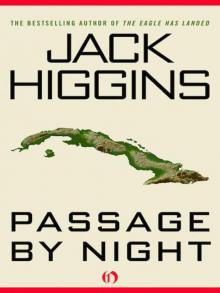 Passage by Night (v5)
Passage by Night (v5)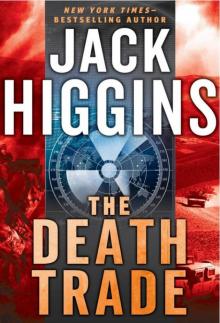 The Death Trade sd-20
The Death Trade sd-20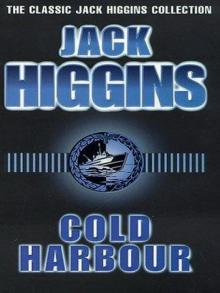 Cold Harbour
Cold Harbour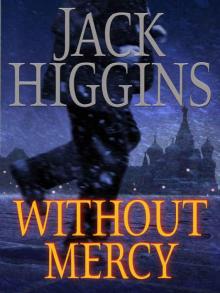 Without Mercy
Without Mercy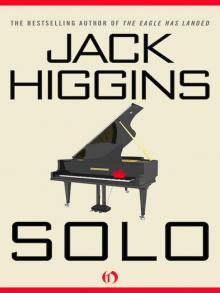 Solo (Aka the Cretan Lover)(1980)
Solo (Aka the Cretan Lover)(1980)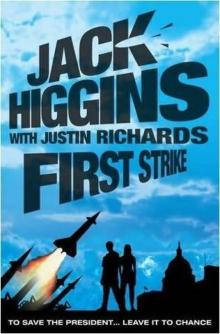 First Strike
First Strike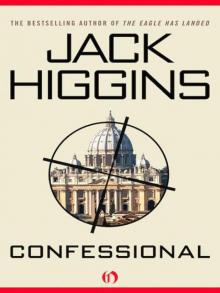 Confessional - Devlin 03 (v5)
Confessional - Devlin 03 (v5)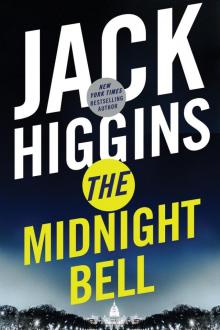 The Midnight Bell
The Midnight Bell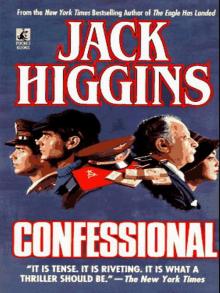 Confessional
Confessional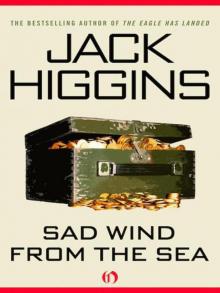 Sad Wind from the Sea (v5)
Sad Wind from the Sea (v5)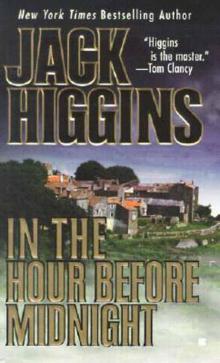 In The Hour Before Midnight aka The Sicilian Heritage
In The Hour Before Midnight aka The Sicilian Heritage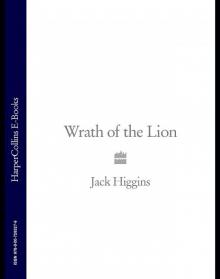 Wrath of the Lion
Wrath of the Lion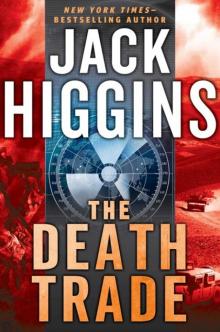 SDillon 20 - The Death Trade
SDillon 20 - The Death Trade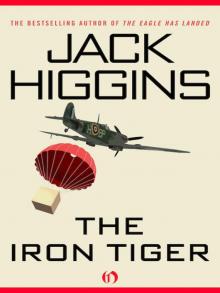 the Iron Tiger (1974)
the Iron Tiger (1974)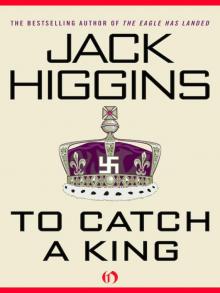 To Catch a King
To Catch a King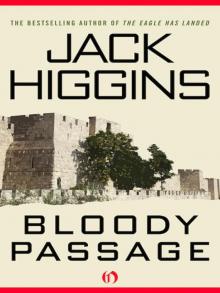 Bloody Passage (1999)
Bloody Passage (1999)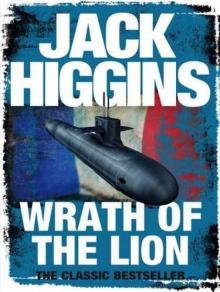 Wrath of the Lion sd-8
Wrath of the Lion sd-8 Sharp Shot
Sharp Shot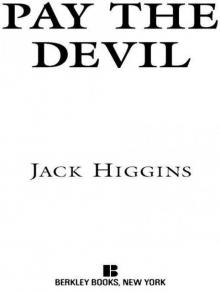 Pay the Devil (v5)
Pay the Devil (v5) A Devil Is Waiting
A Devil Is Waiting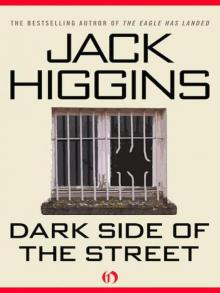 Dark Side of the Street - Simon Vaughn 01 (v5)
Dark Side of the Street - Simon Vaughn 01 (v5)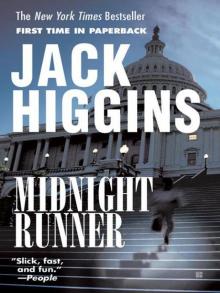 Midnight Runner - Sean Dillon 10
Midnight Runner - Sean Dillon 10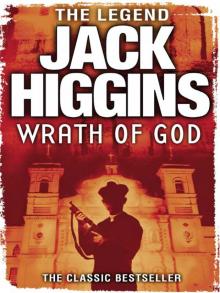 Wrath of God
Wrath of God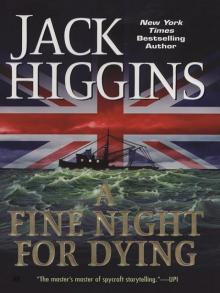 A Fine Night for Dying
A Fine Night for Dying Hell Is Too Crowded v5)
Hell Is Too Crowded v5)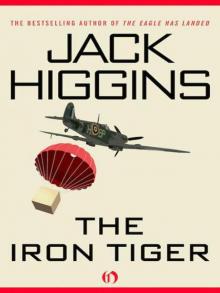 the Iron Tiger (v5)
the Iron Tiger (v5)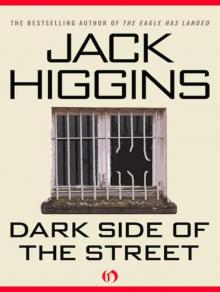 Dark Side of the Street pc-5
Dark Side of the Street pc-5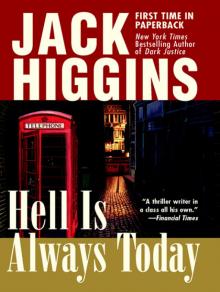 Hell Is Always Today
Hell Is Always Today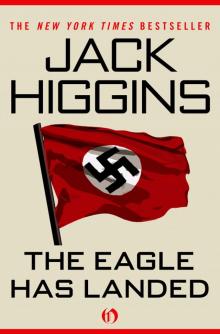 Eagle Has Landed
Eagle Has Landed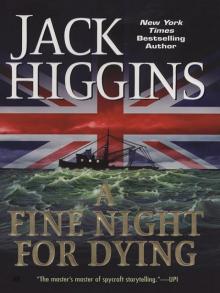 A Fine Night for Dying pc-6
A Fine Night for Dying pc-6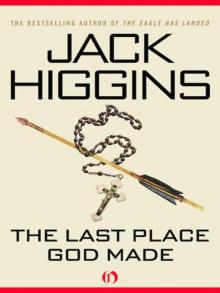 the Last Place God Made (v5)
the Last Place God Made (v5)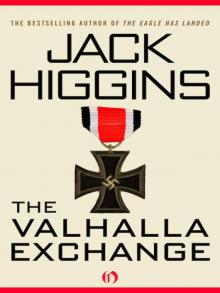 the Valhalla Exchange (1976)
the Valhalla Exchange (1976)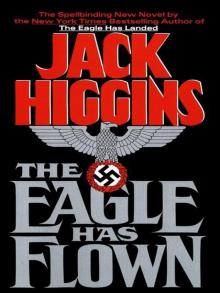 The Eagle Has Flown
The Eagle Has Flown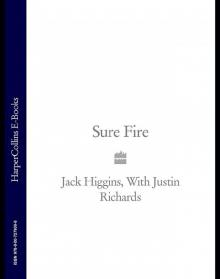 Sure Fire
Sure Fire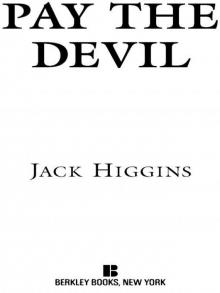 Pay the Devil (1999)
Pay the Devil (1999)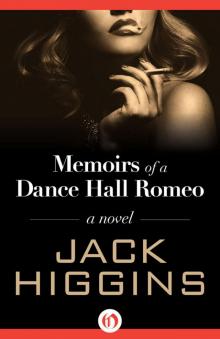 Memoirs of a Dance Hall Romeo
Memoirs of a Dance Hall Romeo![a Prayer for the Dying (1974)[1] Read online](http://i1.bookreadfree.com/i1/04/02/a_prayer_for_the_dying_19741_preview.jpg) a Prayer for the Dying (1974)[1]
a Prayer for the Dying (1974)[1]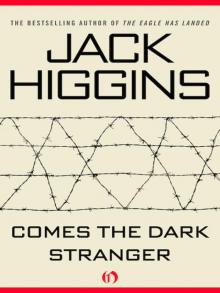 Comes the Dark Stranger
Comes the Dark Stranger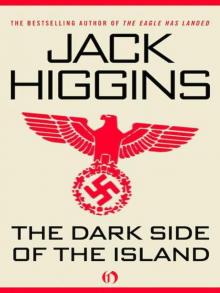 Dark Side Of the Island (v5)
Dark Side Of the Island (v5)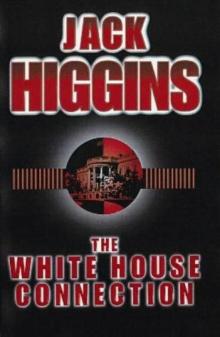 The White House Connection sd-7
The White House Connection sd-7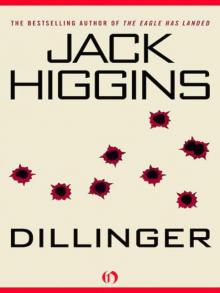 Dillinger (v5)
Dillinger (v5) Eye of the Storm
Eye of the Storm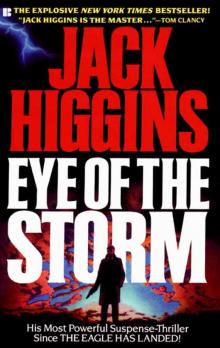 Eye Of The Storm aka Midnight Man
Eye Of The Storm aka Midnight Man A Darker Place
A Darker Place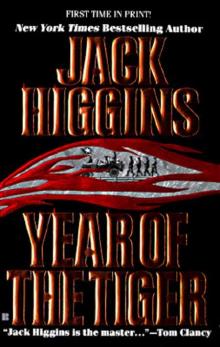 Year Of The Tiger
Year Of The Tiger Death Run
Death Run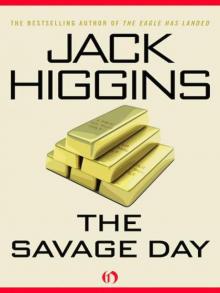 the Savage Day - Simon Vaughn 02 (v5)
the Savage Day - Simon Vaughn 02 (v5)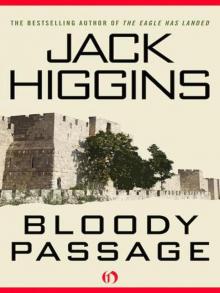 Bloody Passage (v5)
Bloody Passage (v5)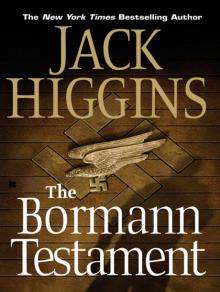 The Bormann Testament
The Bormann Testament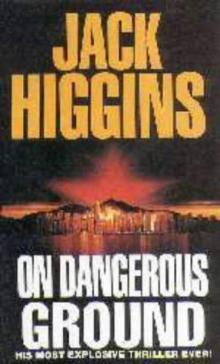 On dangerous ground sd-3
On dangerous ground sd-3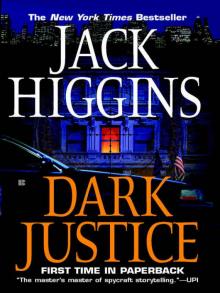 Dark Justice
Dark Justice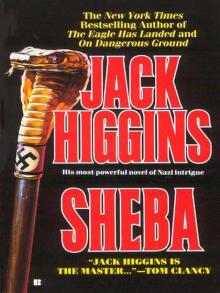 Sheba
Sheba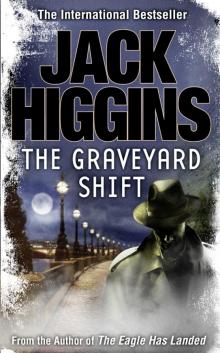 The Graveyard Shift
The Graveyard Shift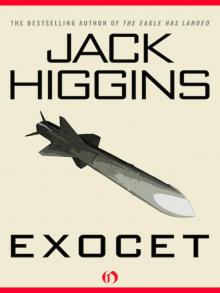 Exocet (1983)
Exocet (1983)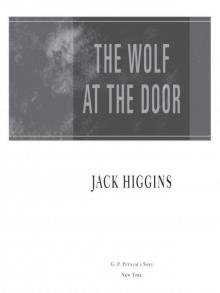 The Wolf at the Door
The Wolf at the Door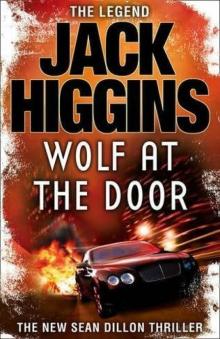 The wolf at the door sd-17
The wolf at the door sd-17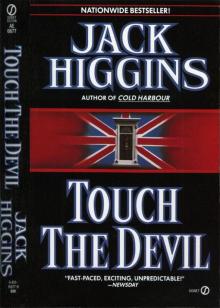 Touch The Devil
Touch The Devil The President’s Daughter
The President’s Daughter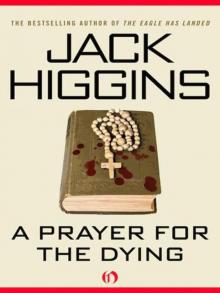 A Prayer for the Dying (v5)
A Prayer for the Dying (v5)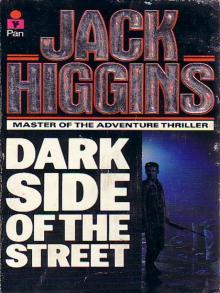 Dark Side Of The Street
Dark Side Of The Street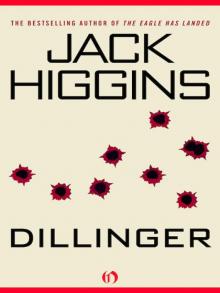 Dillinger (1983)
Dillinger (1983)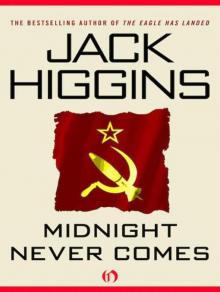 Midnight Never Comes pc-4
Midnight Never Comes pc-4 Hell Is Too Crowded (1991)
Hell Is Too Crowded (1991)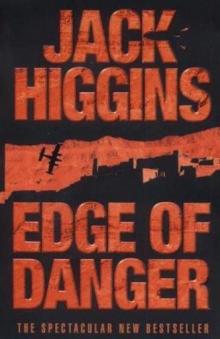 Edge of Danger sd-9
Edge of Danger sd-9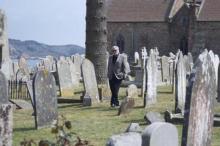 The Thousand Faces of Night (v5)
The Thousand Faces of Night (v5)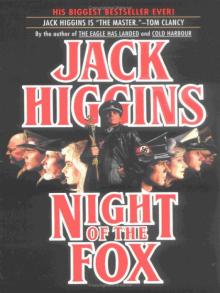 Night Of The Fox
Night Of The Fox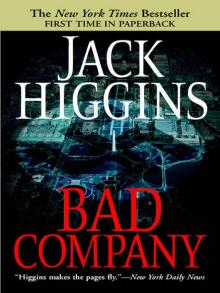 Bad Company
Bad Company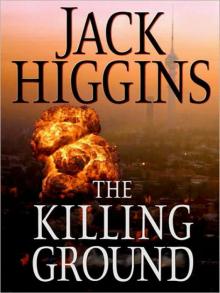 The Killing Ground
The Killing Ground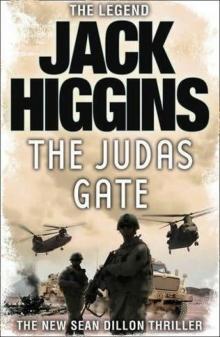 The Judas gate sd-18
The Judas gate sd-18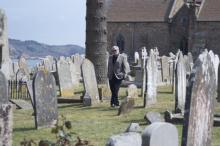 The Thousand Faces of Night (1961)
The Thousand Faces of Night (1961)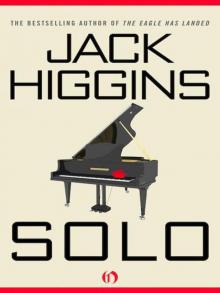 Solo (Aka the Cretan Lover) (v5)
Solo (Aka the Cretan Lover) (v5)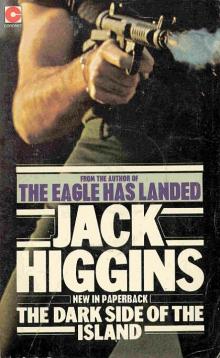 The Dark Side Of The Island
The Dark Side Of The Island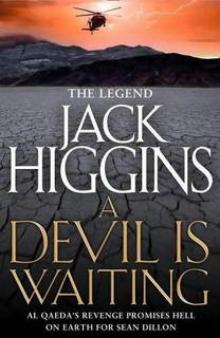 A Devil is vaiting sd-19
A Devil is vaiting sd-19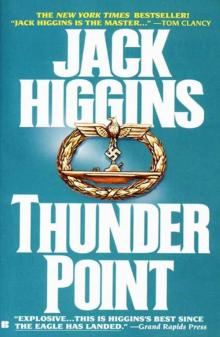 Thunder Point
Thunder Point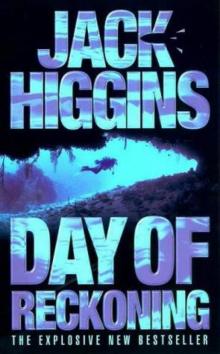 Day of Reckoning sd-8
Day of Reckoning sd-8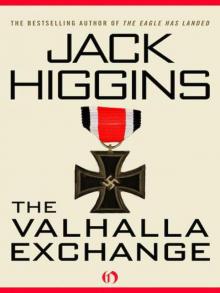 the Valhalla Exchange (v5)
the Valhalla Exchange (v5)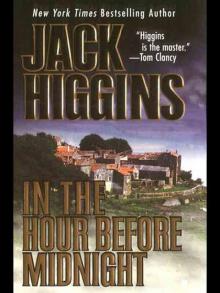 In the Hour Before Midnight
In the Hour Before Midnight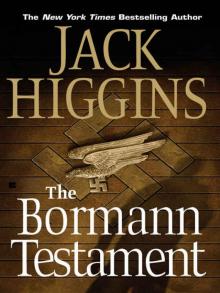 The Bormann Testament (The Testament of Caspar Schultz)
The Bormann Testament (The Testament of Caspar Schultz) The Judas Gate
The Judas Gate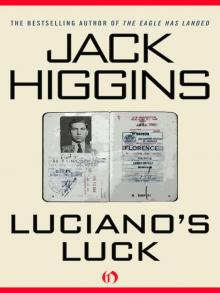 Luciano's Luck
Luciano's Luck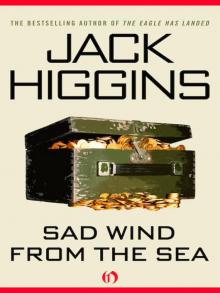 Sad Wind from the Sea (1959)
Sad Wind from the Sea (1959)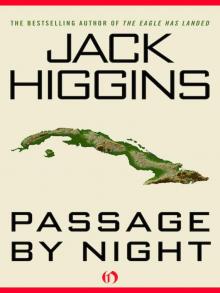 Passage by Night (1987)
Passage by Night (1987)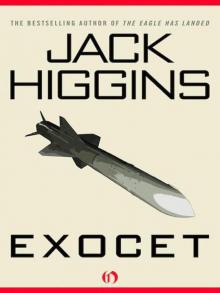 Exocet (v5)
Exocet (v5)